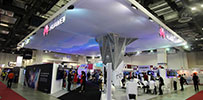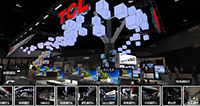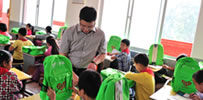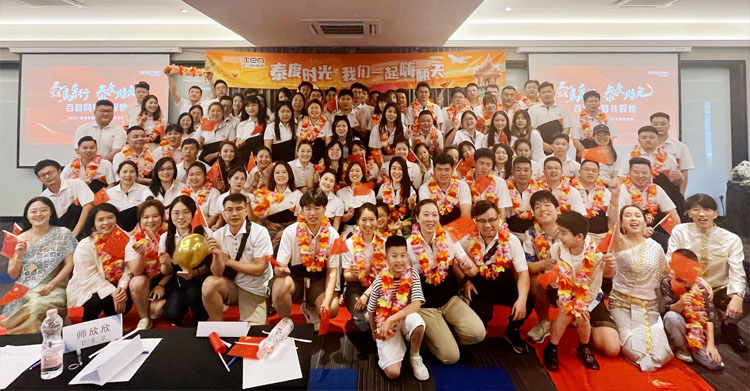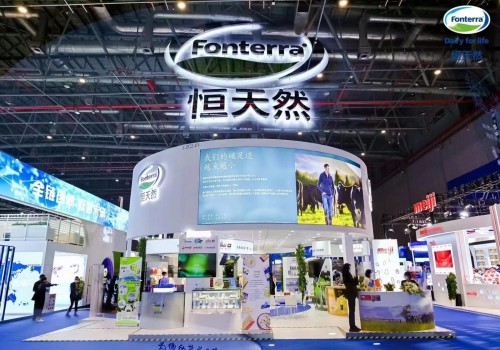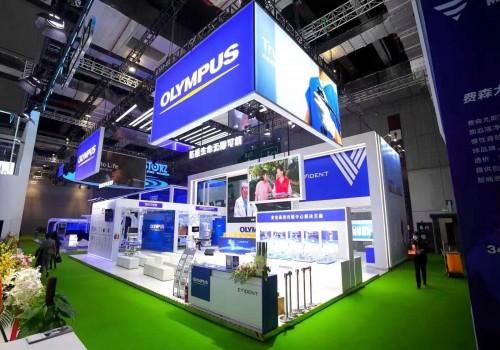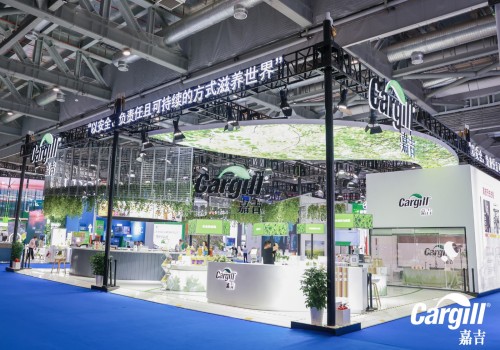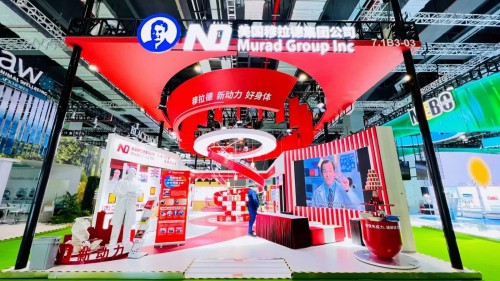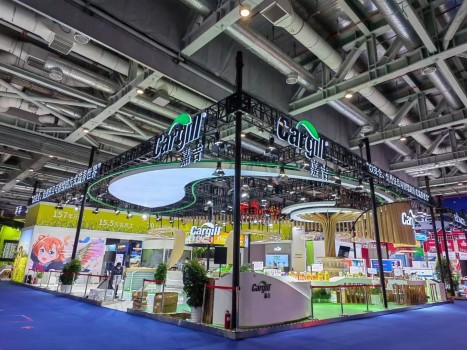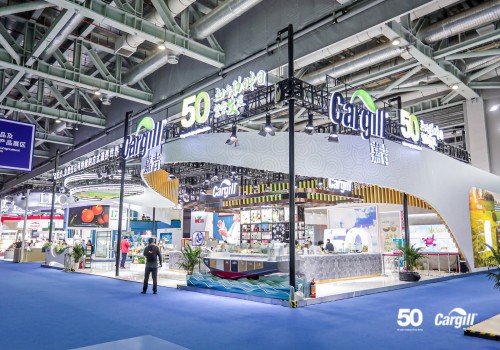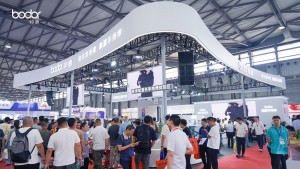
?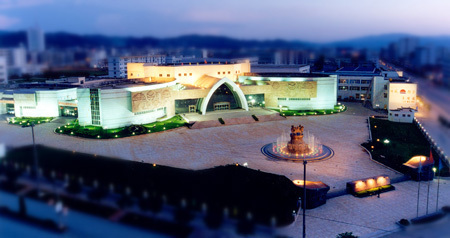
?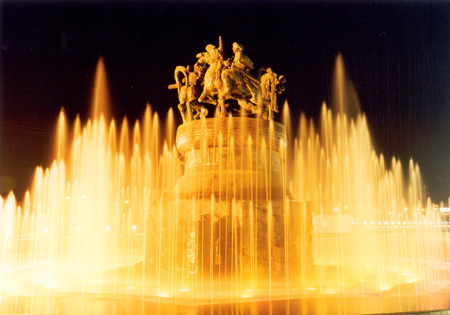 ?
?
玉溪市博物館
Yuxi Museum
中國(guó) 國(guó)家級(jí)綜合類(lèi)博物館。位于云南省玉溪市紅塔大道30號(hào)。1999年被云南省委、省政府確定為“云南省愛(ài)國(guó)主義教育基地”,2000年被云南省人民政府確定為“云南省科學(xué)普及教育基地”,2009年被國(guó)家文物局評(píng)定為“國(guó)家二級(jí)博物館”,2012年被云南省委、省政府評(píng)為“云南省文明單位”, 2013年被云南省社會(huì)科學(xué)聯(lián)合會(huì)列為“云南省社會(huì)科學(xué)普及示范基地”, 2014年被全國(guó)社會(huì)科學(xué)普及工作經(jīng)驗(yàn)交流會(huì)組委會(huì)列為“全國(guó)人文社會(huì)科學(xué)普及基地”,2015年被中國(guó)科學(xué)技術(shù)協(xié)會(huì)確定為“全國(guó)科普教育基地”。
沿革 玉溪市博物館(主體館)成立于1997年4月,2000年建成對(duì)外開(kāi)放,聶耳紀(jì)念館(附屬館)2008年6月成立,2009年5月對(duì)外開(kāi)放。是展示玉溪自然及人文歷史、突出本地文化特色的綜合類(lèi)博物館,也是市內(nèi)標(biāo)志性文化建筑。占地面積40畝,建筑面積12096平方米。主體建筑造型新穎、寓意獨(dú)特。館區(qū)環(huán)境整潔優(yōu)美,場(chǎng)館設(shè)施功能齊全。
藏品 本館藏品22806件,以玉溪古生物化石及歷史文物為主。其中,古生物化石包括“世界自然遺產(chǎn)——澄江寒武紀(jì)古生物化石”和中生代恐龍化石,歷史文物有玉溪窯青花瓷、云南青銅器、聶耳文物、革命文物等。
展覽 主體館有七個(gè)主題常設(shè)展覽和二個(gè)臨時(shí)展廳。七個(gè)常設(shè)展是:“生命圣地——古生物展”、“先民足跡——玉溪史前文化展”、“翰墨流芳——書(shū)畫(huà)藝術(shù)展”、“技藝傳承——玉溪非物質(zhì)文化展”、“烽火硝煙——滇中革命斗爭(zhēng)史展”、“文明之光——玉溪青銅文化展”、“土火之藝——玉溪陶瓷展”。 附屬館聶耳紀(jì)念館位于玉溪市聶耳文化廣場(chǎng),面積4000平方米,由一、二樓的基本陳列廳和三樓的大型半景畫(huà)廳構(gòu)成,陳列分為“匆匆卻又永恒”、“永久的紀(jì)念”、“國(guó)歌的誕生”三個(gè)部份。以史料、照片、實(shí)物等文物,展示了“人民的音樂(lè)家”聶耳的一生。
除開(kāi)放常規(guī)展覽之外,每年自辦和引進(jìn)各類(lèi)臨時(shí)展覽。“穿越古滇文明之光——云南玉溪文物精品展”和“中國(guó)的聲音——聶耳與國(guó)歌展”是本館對(duì)外交流的兩個(gè)展覽項(xiàng)目。
學(xué)術(shù)研究 本館重視學(xué)術(shù)研討和出版推廣工作。編撰出版《云南玉溪窯》、《云南華寧陶》兩部陶瓷專(zhuān)集,2013年起創(chuàng)辦館刊《玉溪博物與收藏》半年刊,已經(jīng)連續(xù)出版多期,受到同行及讀者歡迎。
As a cultural landmark building founded in 1997, Yuxu Museum is comprehensive museum integrating collection, exhibition, scientific research, publicity and exchange. This museum, whose main buildings show unique connotation in novel style, covers land area of 40 Mus, and building area of 12,096 square meters. The museum area boasts clean and beautiful environment. Equipped with fully-functional facilities, the venue consists of various areas, such as for display, administrative office, collection warehouse, comprehensive service, business and scientific research, garden-type ecological greening, and visitors’ leisure and evacuation.
Furnished with over 10,000 collections, this museum provides seven thematic standing exhibitions. By dint of novel display concepts and modern acousto-optic and electrical technologies, they present uniquely-designed and elaborately-made collections, with the support of various forms, such as sculpture, touch screen, film & TV, simulation scene, and interaction with audience. On this basis, they display Yuxi’s natural and humanistic historical look in an all-round manner, deeply explore local humanistic resources, and highlight local cultural characteristics. As a result of this, arrays of high-quality and fascinating collections are display to the public.
Paleontological exhibition (1st and 2nd? floor)
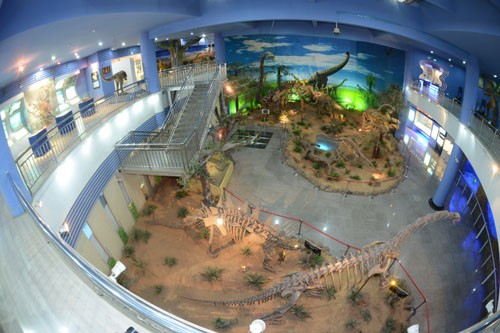
Equipped with abundant fossil remains, Yuxi truly recodes the information of ancient creations. In Mount Maotian, Chengjiang, there are the fauna fossils hailed as one of the most shocking scientific discoveries in the 20th century, which has revealed a most important stage of terrestrial life history—the truth of Cambrian Explosion. In the counties such as Yimen, E’shan, Huaning, Chengjiang, and Jiangchuan, there are quantities of dinosaur fossils, which prove that Yuxi is the habitation of early dinosaurs. Here, people can either enjoy the astonishing development history of Cambrian life 530 million years ago, or witness the process in which the dinosaurs, known as Mesozoic dominator, developed from prosperity to extinction.
Chengjiang orictocoenosis is discovered to consist of 16 phylums, over 200 species, including 146 new genera, and 162 new species. They include the Yunnanozoon—the earliest ancestor of vertebrate, Fuxianhuia— the earliest ancestor of insect, and anomalocaris-the Cambrian sea king with the body length of 2 meters.
On July 1, 2012, the 36th World Heritage Committee voted for listing Chengjiang orictocoenosis as World Natural Heritage. Chengjiang fossil locations separately became the 9th and the 33rd World Natural Heritage in China and Yunnan, thus filling in the blank of Chinese fossils in the field of World Cultural Heritage.
Yuxi boasts the precious dinosaur fossil specimen in the Late Triassic-Early Jurassic (200-180 million years ago), which belongs to Saurischia. They comprise yunnanosaurus magnus, yimenosaurus, lufengosaurus huenei young, coelurosaur, eshanosaurus(therizinosaurus), ect.
The discovery of dinosaur fossil is of great significance for the study on paleogeography, palaeoclimate, and paleontology in Yuxi.
Prehistoric cultural exhibition
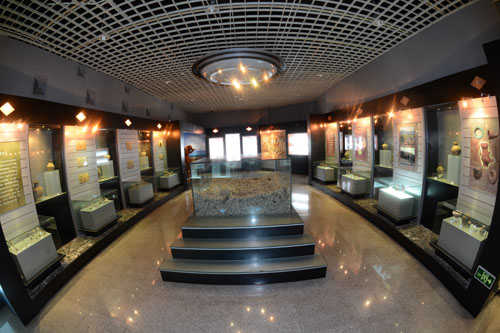 ?
?
Archaeological discovery verifies that Yuxi is an early place where human appeared. About 1 million years ago, there were human beings who led a life in this fertile Middle Yunnan Plateau. This lengthy process developed from walking upright to boring wood to get fire, from forging tools to grinding tools, from fishing and hunting to farming, and from savage to civilization, thus creating the unique prehistoric culture.
It is discovered that Yuxi is now composed of two hominid sites in Palaeolithic Age, namely, Gantangqing, Luju Town, Jiangchuan County, and Laolongdong, Tadian Town, E’shan County. In these two sites, there are a large quantity of unearthed stone implements, bone implements, and zooliths. The site of Gangtanqing, Luju Town, Jiangchuan County was the early type of the Palaeolithic Age, which was 1 million years away from now. The site of Laolongdong, Tadian Town, E’shan County was the type of Late Pleistocene, which was10, 000-20,000 years away from now. It is the hominid cave site that is best preserved with the most abundant buried objects in Yunnan. The sites of the Palaeolithic Age cover the whole city. In particular, the regions of three lakes were the ideal environment for ancient human’s farming, fishing and hunting, living and reproduction. In these regions, a large number of stone implements, bone implements, and potteries have been unearthed successively. The stone implements comprise axe, adze, bracelet, ball, spinning wheel, board for making porcelain seal, etc; bone implements include axe, spade-shaped farm tool, awl, etc; and potteries consist of jar, pot, basin, bottle cup, etc.
Bronze culture exhibition
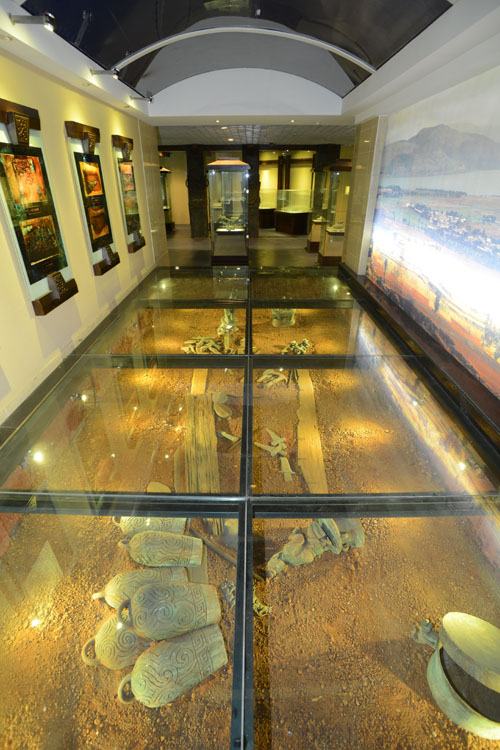 ?
?
Yuxi was one of cradles for the cultures of ancient Yunan. Ancient Yunnan was a mysterious ancient country which flourished around the Dianchi Lake, and the three lakes of Yuxi from the Warring States Period to the Western Han Dynasty. However, after 300-400 years of prosperity, ancient Yunnan vanished in silence, which has caused the endless guesses and imaginations of the later generations.
According to the archaeological discovery, bronze relics unearthed from ancient tombs of Mount Lijian in Jiangchuan County include a large number of complicated and exquisitely-made categories , which not only re-display the styles and features of ancient Yunnan, such as about economy, society, military, culture, religion and art, but also witness the birth, development and vanishing of ancient Yunnan.
History for revolutionary struggle of central Yunnan Province
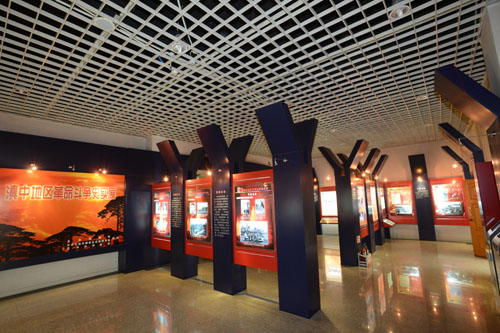 ?
?
In 1927, the Chinese Communist Party was involved in democratic revolutionary struggle in central Yunnan Province. During the following 20 years, the Party has been like a kindling, inspiring the enthusiasm of all ethnic groups in central Yunnan Province in overturning the reactionary rule of imperialism, feudalism, and bureaucrat capitalism. Additionally, it has rapidly developed into the raging flames of burning the old world to liberate all ethnic groups in this region. At that period, all people from Yuxi, either male or female, have made commendable struggle achievements in a bitter and tough context, thus forging an immortal historical monument in central Yunan Province.
Porcelain exhibition
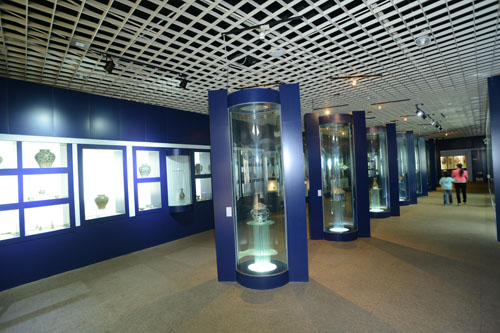 ?
?
In addition to Jingdezhen Kiln, Yuxi Kiln, one of the important kiln sites for firing blue-and-white porcelains in China’s Ming Dynasty
This Kiln was mainly used to fire celadon-glazed blue-and-white porcelains and celadon-glazed printed (engraved) porcelains, such as jar, plate, bowl, cup, stove, and bottle. The products were made of local porcelain clay and cobalt, and fired by dint of advanced techniques at that time. The production workmanship and pattern show that these products have robust styles, vivid and simple patterns, deep white and blue colours and free-and-easy painting techniques, besides striking ethnic folk characteristics.
The discovery and excavation of Yuxi Kiln have clearly manifested the production and development status of blue-and-white porcelains. Exerting a wide influence in the world, this site played an important role either in Chinese porcelain or in fine art histories. Its unearth relics have ever been exhibited in the regions such as UK, JK and Japan.
Painting and calligraphy exhibition
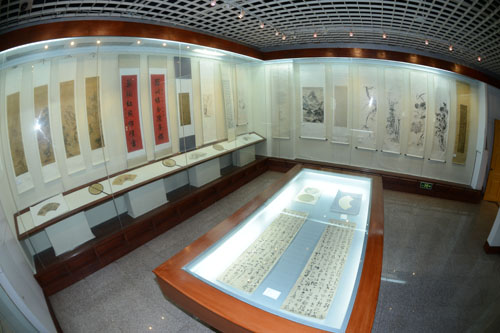 ?
?
Chinese painting and calligraphy are the time-honoured traditional arts with unique styles. Yunan has made superior achievements in painting and calligraphy the Han and Tang Dynasties. In Ming and Qing Dynasties, the masters of painting and calligraphy came forth in large quantities, over 200 of who became notable inside and outside the provinces. In those periods, they have created numerous masterpieces, thus leaving behind previous cultural heritages for the descendents.
In Ming and Qing Dynasties, painting and calligraphy were prevalent, with various famous painters and calligraphers emerging, such as Kan Zhenzhao, Zhao Shilin, Ma Ruwei, Zhou Yuli, Zhong Yue, and Zhou Chuanjing. Due to the high artistic value, their works enjoyed a reputation among both the court and the commonalty, and even benefit contemporary generations. Additionally, these works have developed unique tradition of painting and calligraphy art, which has yielded arrays of fascinating achievements in either ancient or modern times.
Intangible cultural heritages exhibition
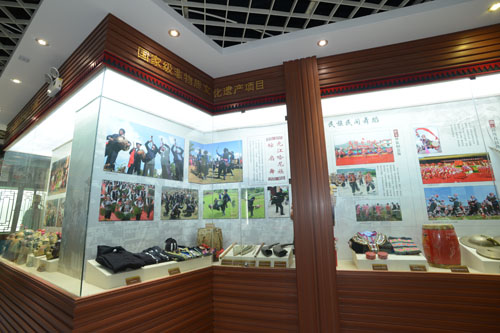 ?
?
Intangible cultural heritage is the manifestation means of traditional cultures that exist in non-physical form, relate closely to people’s life and pass on from generation to generation, including traditional performance art, festival and folk etiquette, traditional folk craftsmanship. In Yuxi, there are 9 major ethnic groups inheriting their own traditional cultural heritages, which have penetrated into people’s daily life. All these ethnic groups have created and left behind precious historical cultural heritages as well as colourful intangible cultural heritages.
Nie’er Memorial
 ?
?
Located in Yuxi Nie’er Culture Square with an area of 4000 square meters, Nie’er Memorial is the branch of Yuxi Museum, which displays the short but brilliant life of “Nie’er – People’s musician” through detailed historical data, photos and real objects.

